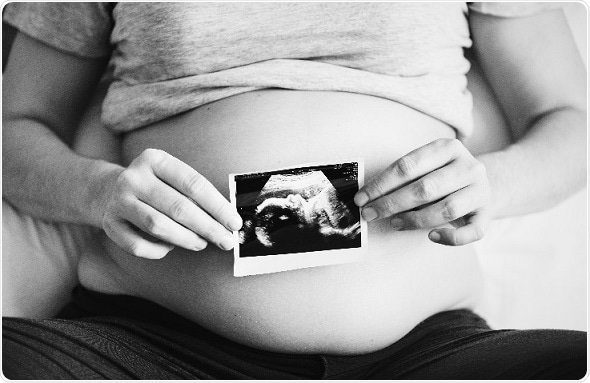Apr 17 2019
Offering universal late pregnancy ultrasounds at 36 weeks’ gestation eliminates undiagnosed breech presentation of babies, lowers the rate of emergency cesarean sections, and improves the health of mothers and babies. These are some of the conclusions of the Pregnancy Outcome Prediction (POP) study published this week in PLOS Medicine by David Wastlund of the University of Cambridge, UK, and colleagues.

Credit: rawpixel.com, Pexels
Undiagnosed breech presentation—when a baby’s buttocks or feet emerge first at birth—increases the risk of perinatal morbidity and mortality. In current practice, fetal presentation is assessed by palpation of the maternal abdomen, but the sensitivity of this approach varies by practitioner. By routinely using ultrasound screening, undiagnosed breech presentation in labor could be avoided, lowering the risk of morbidity and mortality for both mother and baby.
In the new study, researchers performed research screening ultrasounds at 36 weeks’ gestation in 3879 women having first pregnancies in England. A total of 179 women (4.6%) were diagnosed with breech presentation by the research scan. However, in over half of these cases (55%) there was no prior suspicion that the baby was presenting in the breech position. Making the diagnosis at 36 weeks allowed women to opt for an attempt at turning the baby, called external cephalic version. For the women who declined this procedure, or where it was unsuccessful, a planned cesarean section was arranged. None of the women opted to attempt a vaginal breech birth, which is known to be associated with an increased risk of complications, particularly in first pregnancies.
Across the UK, the analysis estimated that routine scanning could prevent ~15,000 undiagnosed breech presentations, more than 4,000 emergency cesarean sections and 7 to 8 baby deaths per year. If a scan could be done for less than £12.90 then it could be cost-saving to the NHS. This could be possible once midwives are instructed how to perform the simple technique, using inexpensive portable equipment.
“Whether the health improvements are enough to justify the increased cost of ultrasound screening is still uncertain, mainly because the cost of ultrasound screening for presentation alone is unknown,” the authors say. “If ultrasound screening could be provided at low cost, for example by making it a part of a standard midwife appointment, routinely offering ultrasound screening could well represent a good use of NHS resources.”